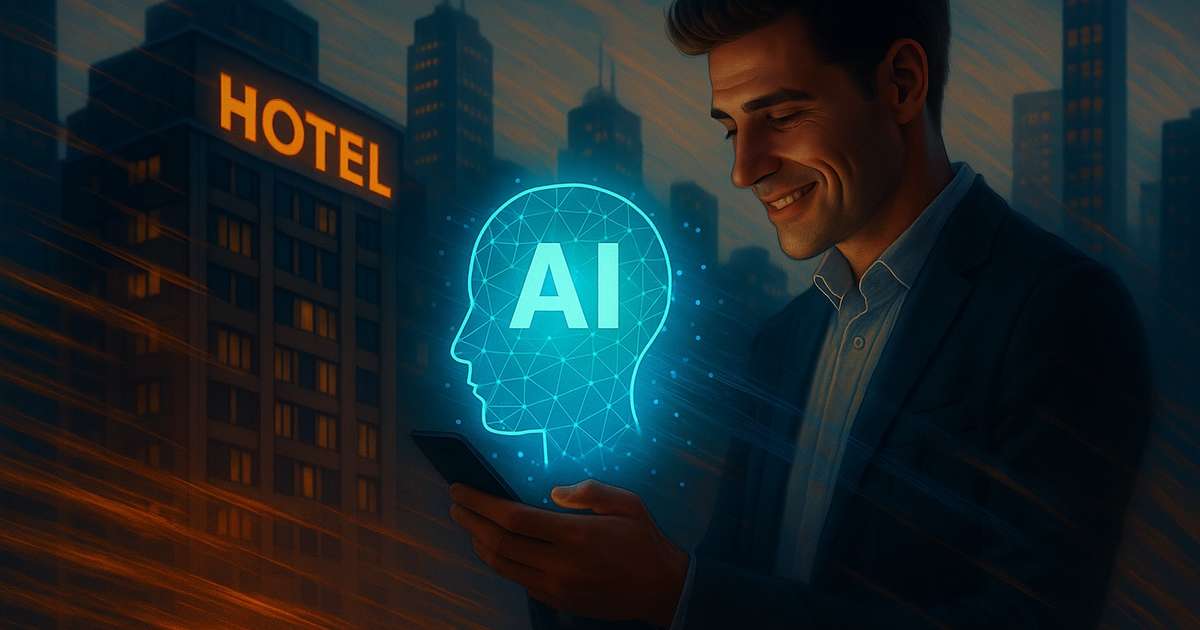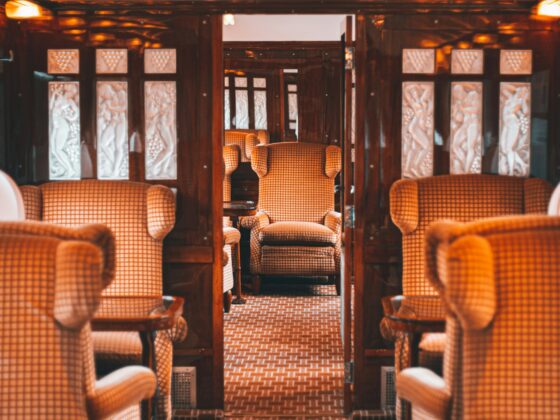
Oh great, another article about AI.
I hear you. AI has been a buzzword in almost every industry over the past two years. Many approach the subject with skepticism, not least because many of the talking points remain theoretical rather than practical. Interesting rather than helpful.
So when Mews CEO, Matt Welle, decided to explore AI for hoteliers, he wanted to make the conversation as grounded and useful as possible. Here are the highlights from the episode, including where to start and five quick wins.
Tackling skepticism: AI and the human touch
Skepticism is natural. Hospitality is the most human industry, and that humanity is what makes it special. But embracing AI doesn’t mean replacing staff with robots. Instead, it means using tools that remove repetitive, manual tasks, giving hoteliers more time to focus on guests.
The real risk isn’t that AI will strip hospitality of its soul. It’s that hotels that resist innovation will fall behind those who harness it. More efficient businesses attract more investment, scale faster and can weather industry shocks – whether that’s a pandemic, economic downturn, or fluctuating travel demand.
Quick wins with large language models
Not every hotel needs to buy expensive AI-powered systems to see benefits. Large language models (LLMs) like ChatGPT or Claude can make a measurable impact. For example:
1. Responding to guest reviews
Every hotelier knows review responses matter, but finding the time is tough. By training ChatGPT with your tone of voice, brand positioning and FAQs, hotels can generate tailored review responses in seconds. Managers don’t have to handle every response themselves – junior staff can easily take on the task with AI as their guide.
2. Guest communication
From answering FAQs to handling booking-related emails, AI can speed up guest interactions. Hotels can upload FAQs, paste in web copy, or even feed in past correspondence so the model learns how to respond consistently. The result: faster replies, better service and more satisfied guests.
3. Translation
Most hotels don’t provide room descriptions or booking engines in more than a handful of languages, despite welcoming guests from all over the world. With AI, translating content into 30+ languages becomes a one-time, low-effort task that can drive more direct bookings. Unlike Google Translate, large language models understand tone and context, rewriting content so it feels natural in every language.
4. Staff scheduling
Rotas have always been a headache – particularly in larger properties with 24/7 operations. AI can simplify this by consuming occupancy data, holiday requests and shift requirements to generate efficient schedules. While still complex, it’s a huge opportunity for innovation, and even experimenting with ChatGPT today can make the process easier.
5. Onboarding new staff
With high turnover in hospitality, effective training is critical. AI can turn long, boring handbooks into digestible quizzes, interactive guides, or structured onboarding journeys. It can also help managers quickly document processes, check staff knowledge, and make training more engaging.
Elevating the guest experience
For all its operational benefits, AI is also a tool to elevate service. Concierge desks are a perfect example. While the role won’t disappear, the way it delivers value will evolve.
Instead of waiting for guests to ask for advice, concierges can use AI to create personalized guides before arrival. A young couple visiting for the weekend might get a curated list of nightlife and trendy restaurants, while a couple celebrating their 50th anniversary might receive recommendations for afternoon tea and local cultural experiences.
This kind of proactive personalization, delivered at scale, is only possible with AI support. It helps concierges – and entire hotel teams – move from reactive service to anticipatory hospitality.
Where to start
The beauty of today’s AI tools is accessibility. You don’t need to wait for enterprise-level integrations to test them. Most models are free or cost less than $20 per month. Hoteliers can begin by experimenting with one use case: review responses, guest FAQs, or translations.
The next time you see a human doing something manual and time-consuming, try to export that file and ask ChatGPT what it would recommend. It’s very clever at learning what you do, then automating parts of the process.
Begin with small, actionable steps. Dip your toes in, learn what works, and scale from there.
Hospitality, reimagined with AI
Hospitality is built on people, not machines. A warm welcome at check-in, a smile at breakfast, a concierge who knows the neighborhood better than any app. These are the moments that make our industry special.
The future of hospitality won’t be defined by replacing staff with machines. It will be defined by how hotels use technology to empower their people.
AI won’t pour the drinks, smile on arrival, or share a personal story about the city. But it will free hoteliers from admin, speed up communication, and surface insights buried in data. That means more time, more focus and more energy for what really matters: creating remarkable guest experiences.
The hotels that succeed will be those that embrace AI not as a threat, but as an ally. A silent partner working behind the scenes, helping teams deliver the kind of hospitality that keeps guests coming back.
For more practical tips and ideas for using AI in your hotel’s day-to-day, watch the full episode of Matt Talks here:
Watch the episode:
About Mews
Mews is the leading platform for the new era of hospitality. Powering over 12,500 customers across more than 85 countries, Mews Hospitality Cloud is designed to streamline operations for modern hoteliers, transform the guest experience and create more profitable businesses. Customers include BWH Hotels, Strawberry, The Social Hub and Airelles Collection. Mews was named Best PMS (2024, 2025) and listed among the Best Places to Work in Hotel Tech (2021, 2022, 2024, 2025) by Hotel Tech Report. Mews has raised $410 million from investors including Growth Equity at Goldman Sachs Alternatives, Kinnevik and Tiger Global to transform hospitality.








